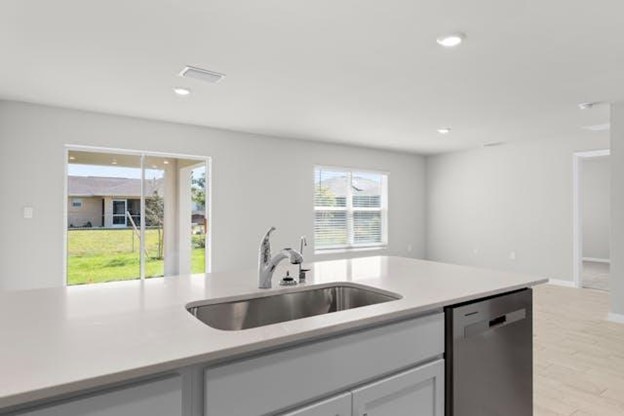When you reach a certain stage in life, the idea of building something new—not just financially, but personally—starts to take on real weight. Many older adults, somewhere between raising families and retirement, are now turning to an unexpected second act: house flipping. Not as some high-risk HGTV fantasy, but as a viable, smart way to create income, stay active, and keep their hands and minds busy. And with a little strategy and a lot of common sense, it’s a space where experience often trumps youth.
Start Where You Are, With What You Know
You’ve already navigated careers, raised kids, maybe even paid off a mortgage. That experience translates in ways you might not expect when entering the world of flipping homes. Instead of trying to compete with 30-year-olds scrolling Zillow for fixer-uppers, you lean into what you already know—what makes a house feel like home, how to spot a good neighborhood, and when a contractor’s quote sounds off. That intuition isn’t just a perk; it’s a real competitive edge. Trusting your gut, backed by years of real-world observation, can steer you toward projects worth your time.
Finance Without Overreaching
One of the biggest pitfalls in house flipping is overextending financially. For seniors, there’s typically a bit more breathing room—equity in an existing home, retirement accounts, or savings earmarked for investments. That doesn’t mean taking big risks is a good idea. It just means you’re positioned to make smarter, measured financial moves. Consider partnering with a financial advisor who understands real estate to help structure your first flip conservatively. You’re not chasing a windfall—you’re building something sustainable.
Sharpen the Business Side of the Flip
Even if you’ve spent a lifetime managing a household or running teams at work, diving into the business side of house flipping requires a fresh set of tools. Understanding costs, local markets, taxes, and even marketing strategies will give you the edge needed to make smart, profitable decisions. One way to build that acumen is by enrolling in an online program that lets you take courses at your own pace, so you can learn without disrupting your schedule. If you’re looking to dig deeper into the fundamentals of business to support your real estate investing, be sure to explore this option further.
Pick the Right Properties in the Right Places
Not every house is a good flip, and not every zip code has buyers. The beauty of being in your 50s or 60s is that you’ve seen how neighborhoods change. You probably remember when the now-trendy part of town was a rundown afterthought. That perspective can help you buy in emerging areas before they hit their peak. Look for places with growth indicators—new schools, parks, public transport, or an influx of young families. A good flip isn’t about gambling; it’s about spotting what others miss.
Choose Contractors Who Respect Your Time
Let’s be honest—one of the fastest ways to lose money in this business is by working with the wrong people. As a senior, you have a distinct advantage: people are more likely to respect you as a client, and you’re more inclined to value accountability over flash. Don’t settle for vague estimates or slippery communication. Look for licensed professionals with solid references, and don’t hesitate to ask tough questions. The contractors who do quality work on time and on budget are worth every penny.
Why HVAC and AC Should Never Be Afterthoughts
Here’s a detail that too many first-time flippers overlook—people don’t just buy with their eyes. They buy with their comfort. Walking into a home in the Texas summer and feeling crisp, cool air? That’s a visceral selling point. HVAC systems are one of those things buyers don’t want to think about—but they will think about it if it’s outdated or broken. That’s why working with a well-regarded company like Air National Texas is a smart move. They specialize in air conditioning services, and they’ve built a reputation for reliability and transparency—two things you should never compromise on.
Lean Into Design That Makes Sense for Buyers
Your life experience can shape how you design a flipped house. You know how a kitchen should flow, how storage really matters, and why natural light sells homes. Use that. Focus on details that younger flippers often overlook in favor of trendy finishes—accessible layouts, energy-efficient upgrades, and clean, neutral aesthetics. These aren’t just nice-to-haves; they create a sense of ease that helps buyers envision their own lives in the space. And that kind of emotional connection closes deals faster.
Make This a Lifestyle, Not a Job
Perhaps the best part about flipping homes as a senior is that you don’t have to treat it like a 60-hour-a-week hustle. You can take your time. You can choose projects that align with your energy and your values. Maybe you take on one or two houses a year, maybe you partner with friends or family to keep things collaborative. It’s not about becoming a mini real estate empire. It’s about building something on your own terms, using skills you’ve spent decades developing.
There’s a myth that reinvention belongs to the young. But the house-flipping world proves otherwise. If you’re an older adult with time, energy, and an eye for potential, you’ve got the raw material for success. This isn’t about chasing dreams—it’s about choosing your next chapter with clarity and confidence. Whether you’re walking through dusty fixer-uppers or calling a trusted HVAC company to prep for resale, you’re creating something valuable—and that has nothing to do with age.
Before you list your flip, make sure the HVAC is in top shape with the help of Air National Texas to ensure your cooling systems are reliable, efficient, and ready to help seal the deal.



